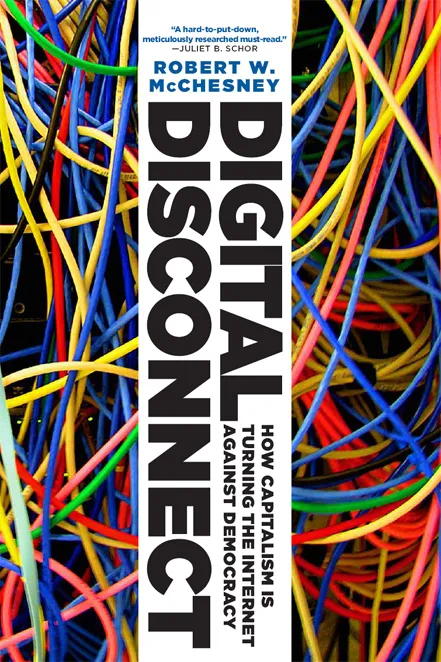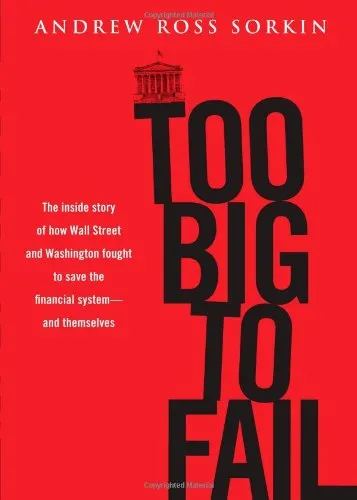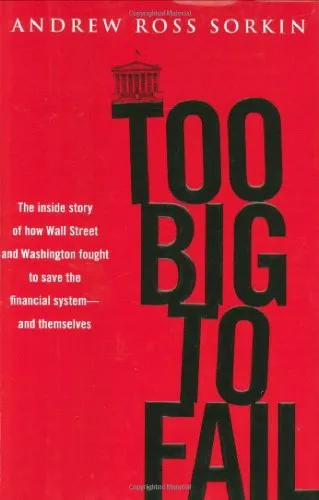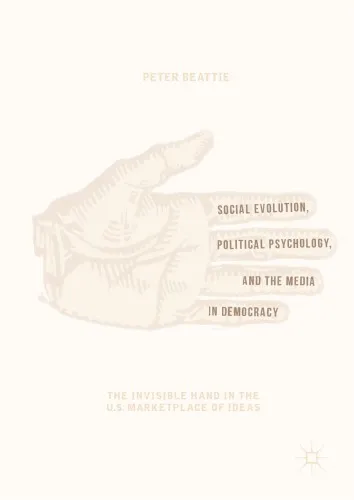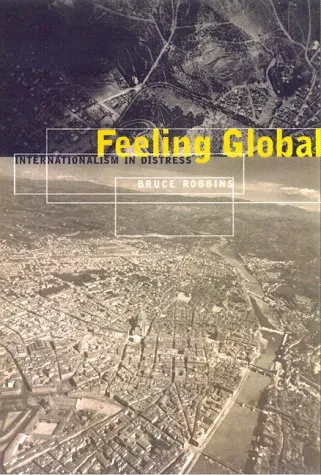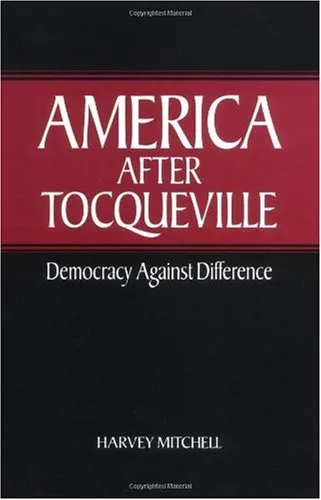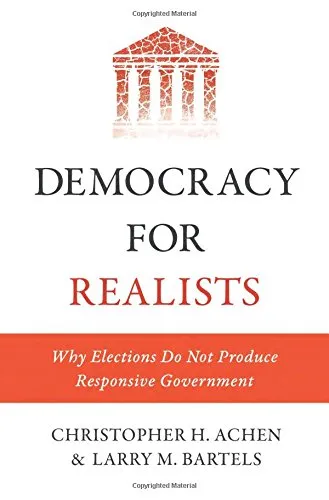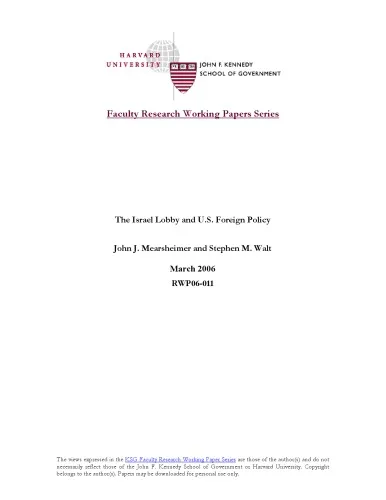Digital disconnect: how capitalism is turning the Internet against democracy
4.5
بر اساس نظر کاربران

شما میتونید سوالاتتون در باره کتاب رو از هوش مصنوعیش بعد از ورود بپرسید
هر دانلود یا پرسش از هوش مصنوعی 2 امتیاز لازم دارد، برای بدست آوردن امتیاز رایگان، به صفحه ی راهنمای امتیازات سر بزنید و یک سری کار ارزشمند انجام بدینکتاب های مرتبط:
معرفی کتاب "Digital Disconnect: How Capitalism Is Turning the Internet Against Democracy"
کتاب "Digital Disconnect" نوشتۀ رابرت دبلیو. مکچزنی یکی از آثار برجسته در رابطۀ اینترنت، کاپیتالیسم، و وضعیت دموکراسی در عصر دیجیتال است. این کتاب بهطور جامع و مستدل نشان میدهد که چگونه رؤیای نخستین از اینترنت بهعنوان ابزاری برای تقویت آزادی و همبستگی اجتماعی به کابوسی تبدیل شده که به تقویت قدرت شرکتها و منافع اقلیت منجر میشود. مکچزنی در این اثر به بررسی عمیق نقش سرمایهداری و منطق سودجویی در تغییر مسیر اینترنت میپردازد و چالشهایی که این پدیده برای دموکراسی ایجاد میکند، تحلیل میکند.
خلاصۀ جامع کتاب
در کتاب "Digital Disconnect"، مکچزنی بر این باور است که اینترنت، مانند تمام فناوریهای تاریخی، در خلأ سیاسی ایجاد نمیشود. در آغاز، اینترنت به عنوان ابزاری باز و دموکراتیک تصور میشد که میتوانست دسترسی به اطلاعات را آزاد کند و مشارکت اجتماعی را افزایش دهد. اما آنچه در عمل شاهد آن هستیم، تسلط شرکتهای بزرگ بر زیرساختهای اینترنت و تبدیل آن به یک ابزار سودجویانه است که بیش از آنکه به منافع جمعی خدمت کند، برای منافع خاص طراحی شده است.
این کتاب به سه بخش اصلی تقسیم میشود. بخش نخست به تحلیل ریشههای تاریخی اینترنت و نحوۀ شکلگیری آن میپردازد. بخش دوم به بررسی ارتباط اینترنت با کاپیتالیسم مدرن اختصاص داده شده است. در این بخش مکچزنی توضیح میدهد که چگونه منطق سودآوری، برتری قدرت شرکتها، و فعالیتهای انحصاری، بسیاری از قابلیتهای دموکراتیک اینترنت را از بین برده است. بخش پایانی کتاب نگاهی انتقادی به آینده دارد و پیشنهاداتی برای بازپسگیری اینترنت و بازگرداندن آن به خدمت دموکراسی ارائه میکند.
نکات کلیدی کتاب
- اینترنت ابزاری خنثی نیست و بهشدت تحت تأثیر نیروهای اقتصادی و سیاسی جهان مدرن قرار دارد.
- شرکتهای بزرگ مانند Google و Facebook، با تسلط بر اطلاعات، اقتصاد و جوامع را جهتدهی میکنند.
- مدل کسبوکار مبتنی بر تبلیغات در اینترنت، باعث شده تا حریم خصوصی کاربران قربانی شود و اطلاعات آنان به کالای تجاری تبدیل گردد.
- برای جلوگیری از کاهش کیفیت دموکراسی، نیاز به سیاستگذاریهای شفاف و عادلانه داریم.
- تغییر وضعیت فعلی تنها با آگاهی عمومی و مقابله با ساختارهای قدرت موجود امکانپذیر است.
جملات ماندگار از کتاب
"اگر اینترنت در خدمت دموکراسی باشد، نیازمند سیاستها و ساختارهایی هستیم که از سلطه شرکتها و سودجویی خالص جلوگیری کنند."
"ما ناچاریم انتخاب کنیم که آیا اینترنت ابزاری برای آزادی باشد یا ابزاری دیگر برای سلطۀ شرکتها."
"حرفهایسازی، الگوسازی، و نظارت بر ارتباطات آنلاین به برتری نظام تبلیغات منجر شده است."
چرا این کتاب مهم است؟
از دیرباز، اینترنت بهعنوان یکی از ستونهای اصلی مدرنسازی و تسریع دموکراتیکشدن جوامع مطرح بود. اما افزایش نفوذ شرکتهای بزرگ فناوری و سیاستهای اقتصادی نابرابر، این رؤیا را به طور جدی تهدید کرده است. کتاب مکچزنی زنگ خطری برای همگان است تا نقش خودمان را در بازیابی آزادیهای ازدسترفته در عصر دیجیتال بررسی کنیم.
این کتاب برای پژوهشگران، سیاستگذاران، و خوانندگان علاقهمند به فناوری و جامعهشناسی دیدگاهی جدید فراهم میآورد و بهخوبی نشان میدهد که چگونه ساختارهای اجتماعی و اقتصادی میتوانند فناوریهای بالقوه دموکراتیک را تضعیف یا تقویت کنند. اثر مکچزنی بهوضوح بیانگر این است که بدون مداخلات آگاهانه، اینترنت بهجای تقویت دموکراسی، ابزار سلطه و نابرابری خواهد شد.
Introduction to 'Digital Disconnect: How Capitalism is Turning the Internet Against Democracy'
In Digital Disconnect, Robert W. McChesney delivers a searing critique of how the internet — once hailed as a revolutionary tool for democratic engagement, free expression, and economic prosperity — has devolved into a mechanism controlled by powerful corporate interests. The book argues that despite the internet's potential to empower individuals and promote democracy, its evolution has been fundamentally distorted by capitalism.
McChesney illuminates how the digital age, originally envisioned as an open platform for innovation and connectivity, has been hijacked by monopolistic corporations. Instead of promoting public good, the internet is now leveraged to maximize profit, undermining the values of democracy in the process. By exposing the link between corporate power and the erosion of democratic systems, McChesney warns readers of the urgent need to address these systemic issues for a more equitable digital future.
Detailed Summary of the Book
The book begins by exploring the historical context of the internet's development, situating it within broader trends in capitalism and media. McChesney highlights how early visions of the internet were imbued with optimism — celebrated as a tool to level the playing field and empower individuals. However, he systematically dismantles this mythology by revealing the economic and political influences that have shaped its evolution.
McChesney identifies the concentration of power in a handful of tech giants like Google, Facebook, and Amazon as the primary culprit for the internet’s deviation from its original promise. These corporations, driven by profit motives, have created an online ecosystem dominated by surveillance capitalism, where user data is commodified and privacy is sacrificed for advertising revenue. This centralized model not only fuels inequality but also threatens freedom of expression by prioritizing content that reinforces consumerism and suppresses dissenting voices.
Furthermore, the book delves into how these developments exacerbate political polarization and mislead public discourse. Algorithms designed to optimize engagement often amplify misinformation, creating echo chambers that distort the truth for monetary gain. McChesney explains how this dynamic undermines the very foundations of democratic deliberation and accountability.
As McChesney charts the internet's rise within a neoliberal capitalist framework, he urges readers to reconsider the relationship between technology, power, and democracy. The book concludes by calling for structural reforms, including stronger public oversight of tech companies, regulatory measures to curb monopolistic behavior, and the promotion of alternative, nonprofit-driven internet models.
Key Takeaways
- The internet's transformation from an open medium to a corporate-controlled ecosystem is a direct result of capitalism's dominance over political and technological decisions.
- Surveillance capitalism, enabled by the data economy, prioritizes profit over user privacy and democratic accountability.
- Political polarization and the spread of misinformation are byproducts of profit-driven algorithms that exploit human psychology to maximize user engagement.
- Public intervention and systemic reforms are essential to reclaim the internet as a democratic space that serves the public interest.
Famous Quotes from the Book
"The internet is not inherently democratic or undemocratic; its politics are dependent entirely on how it is controlled and structured."
"The central tragedy of the digital revolution is how its vast potential has been subordinated to the narrow logic of profit-making."
"If democracy is to survive, the internet must be wrested from the grip of the monopolistic corporations that prioritize profits over people."
Why This Book Matters
Digital Disconnect is a critical wake-up call for anyone invested in the future of democracy and the internet. At a time when technology’s influence pervades every aspect of society, McChesney’s analysis reveals the hidden forces shaping our digital lives and their consequences for human rights, privacy, and civic engagement.
The book challenges readers to grapple with the intersection of capitalism and technology and compels policymakers, technologists, and citizens to advocate for a fairer, more democratic internet. Its arguments are particularly relevant in today’s landscape, where discussions about antitrust reforms, content moderation, and the ethical use of AI dominate public discourse.
In essence, McChesney’s work stands as a clarion call to rethink society’s digital priorities and reclaim the internet as a transformative force for good.
دانلود رایگان مستقیم
شما میتونید سوالاتتون در باره کتاب رو از هوش مصنوعیش بعد از ورود بپرسید
دسترسی به کتابها از طریق پلتفرمهای قانونی و کتابخانههای عمومی نه تنها از حقوق نویسندگان و ناشران حمایت میکند، بلکه به پایداری فرهنگ کتابخوانی نیز کمک میرساند. پیش از دانلود، لحظهای به بررسی این گزینهها فکر کنید.
این کتاب رو در پلتفرم های دیگه ببینید
WorldCat به شما کمک میکنه تا کتاب ها رو در کتابخانه های سراسر دنیا پیدا کنید
امتیازها، نظرات تخصصی و صحبت ها درباره کتاب را در Goodreads ببینید
کتابهای کمیاب یا دست دوم را در AbeBooks پیدا کنید و بخرید
1617
بازدید4.5
امتیاز0
نظر98%
رضایتنظرات:
4.5
بر اساس 0 نظر کاربران
Questions & Answers
Ask questions about this book or help others by answering
No questions yet. Be the first to ask!
